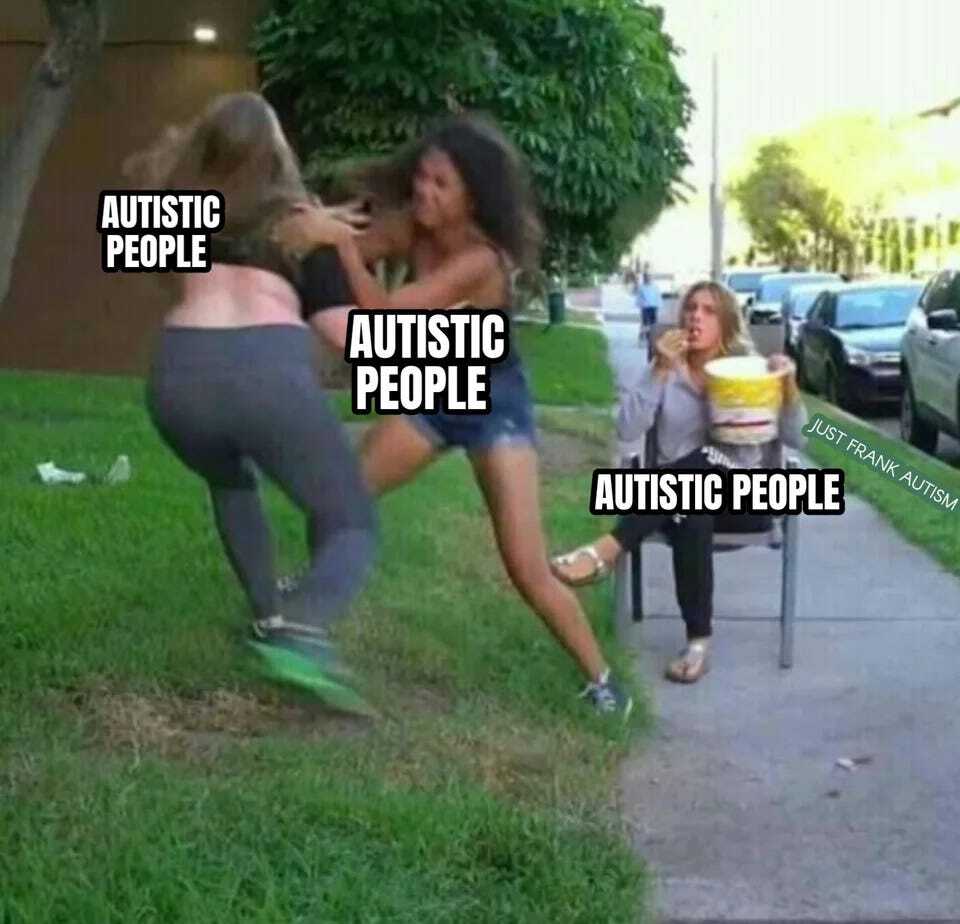That would need a whole article if I were to explain my background, but to put it succintly, I’m a third culture kid who lived in the US and went back to Indonesia.
- Pavitr Prabhakar is Spider-Man India, featured in Across the Spider-Verse
- Nilesh Chanda is a fanfic version of Vinod Chanda from Pantheon AMC, featured in The Kalkiyana
Check out my blog: https://writ.ee/pavnilschanda/
- 1 Post
- 12 Comments
I don’t know, I personally have trouble communicating with some fellow autistics sometimes. Autism is a spectrum after all, and I think individual autistic communication is also informed by cultural expectations (ethnicity, race, class, etc) albeit in a different way from how NT communication is shaped. Given that my cultural background is quite different from a typical person, I often run into problems when communicating with other autistics as well.
This is one of the reasons I am comfortable with chatting with LLMs (I interact with real people too, don’t worry)

 3·2 years ago
3·2 years agoObserving my family members, they all seem to fall into this category (I’m diagnosed as autistic). They tend to be either introverted and at most only keeps a few friends despite the constant socialization.

 1·2 years ago
1·2 years agoReally? I thought the Z Flip was pretty popular

 4·2 years ago
4·2 years agoI still remember every weekend during my youth when I would ask my dad to allow me to connect the LAN cable to my room’s computer just to connect to the internet. I remember being stuck in the computer room at school when I had no friends in real life, even when there’s no internet, in hopes to go online one day, just anything to keep me busy. But now the internet feels toxic, a hyperreality, a magnification of society’s inherent traits, especially the non-autistics, and now even online feels about as bad as offline, even worse with its intense criticism of anything neurodivergent.

 2·2 years ago
2·2 years agoI love classic music so that would extend to opera somewhat, and I also love tech. It’s quite an interesting combination, to say the least.

 9·2 years ago
9·2 years agoDoesn’t matter. I’ve had bad experiences with both ND and NT.

 19·2 years ago
19·2 years agoThat seems to be the case: Ars Technica, Reddit, even this forum, are in favor of the minis. But the thing is most of us are tech enthusiasts who’d rather use our computers and tablets for a larger screen over the iPhone, so most of the population who would be drawn to the minis are concentrated there.

 10·2 years ago
10·2 years agoI agree with this. As someone who is closely involved in the autistic community, autistics aren’t immune to sexism, classism, racism, or any other biases that are also ingrained in neurotypicals. And yes, this has caused interpersonal conflicts where some autistics are marginalized in their own communities.
We need more realism in the autistic community, not toxic positivity nor ableist self-hatred.
So I’m someone who’s very involved with the autistic community in my country (at least used to, taking a break now, not sure when to come back). I’m just gonna pitch in and say that self-diagnosis is more of a symptom of a larger problem: which is lack of access to proper, official diagnoses. It’s not perfect, in fact it can be harmful. For example, I know someone online who thought they were autistic and through a doctor who specializes in autism, they turned out to have BPD. Now, imagine if a self-diagnosed autistic who actually has BPD doesn’t and/or can’t go through a proper ASD assessment (and to an extent isn’t aware of their BPD either, because as I said, lack of proper assessment), and they enter the autism community, manifesting their behavior in less than ideal ways, which does more harm and good. This is one possible, and perhaps damaging result of the emergence of self-diagnosis. But at the same time, the system doesn’t provide the assessment, and so self-diagnosis is the only pathway to understand what may be wrong with us. The thing we must collectively fight for is to make official diagnosis more accessible and affordible, the methods vary depending on the country, of course.
Full disclosure: I was officially diagnosed as a toddler. But I know many adults who resorted to self-diagnosis or get diagnosed remotely (by people who may or may not be qualified to do such assessment) because assessment for adults is difficult here. The local psychologists have not proven that they use the proper diagnostic tools to assess autistics in adults; a big hurdle is the lack of local translations.

 2·2 years ago
2·2 years agoThis is what I’m looking for: AI to assist the neurodivergent. There’s so much potential given that AI is now capable of human understanding more than before. Of course there may be some work here and there, but I’m sure that the devs have that in mind. Another app that I can think of is goblin tools. Definitely useful to sort out thoughts and communication.


deleted by creator